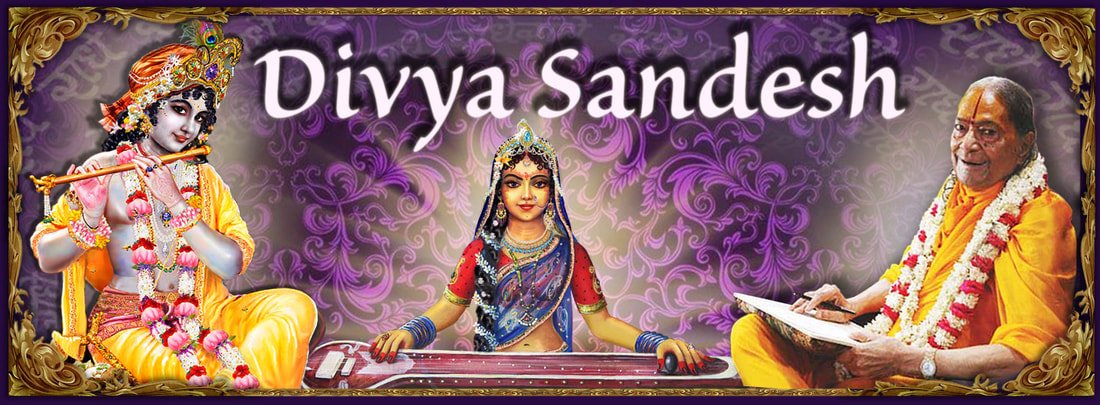The five obstacles of mind, which prevent the soul from going towards the ultimate goal of life, are called Panchklesh (पंचक्लेश). Panch (पंच) means five, klesh (क्लेश) means obstacle. These five obstacles are described by Patanjali in the Yoga Sutra.
The literal meaning of the word avidya (अविद्या) is ignorance. The root cause of our sufferings is ignorance. Due to ignorance one has misconceived notions about three concepts. Pain emanates due to these notions.
Those notions that we hold on to are -
Those notions that we hold on to are -
- The temporary matters of the world as permanent (अनित्य को नित्य मानना) - This part of ignorance inspires us to continue to accumulate material things and associate with material beings. We suffer in the beginning as we strive hard to procure those temporal objects. After obtaining them, then we again suffer for the fear of their loss, hence strive again to protect them. Finally, we again become miserable when they are damaged or demised . In spite of myriads of experiences of many life times, we could not realize the fleeting nature of the material objects.
- The pain of the world as true pleasure (दुःख को सुख मानना) - For example when a baby is born, parents are delighted, with an acuity, imagining that the baby will bring immense happiness. They cannot foresee, one more link is added in the chain of bondage. In other words, their life is going to be more stressed now. Lord Buddha could see it. When minutely observed one would realize that all kinds of material pleasures become a cause of pain later on. And, while enjoying those pleasures, there is fear of being deprived of it. Additionally, no material object (thing or person) lasts for ever hence pleasure derived from them cannot be enjoyed forever. After a brief time you feel the insipidness of the material object.
- The Material body as the self (अनात्म को आत्म मानना) - This is the second part of ignorance. It is experienced by everyone at the time of death that the soul departs from the body and the body therefore dies. Family and friends do not feel any affection or attachment to that particular dead body, which used to be very near and dear. It undoubtedly proves that the body and the soul are the two different entities. We are the soul not the body and soul leaves the body when the lifetime of body is complete.
Asmita (अस्मिता) is ego. We have a false ego of our body, which is ephemeral. This ego generates many other differences like I am a man, I am a woman. Further sub-classifications by wealth, nationality, caste and many other ways. Then further sub-divide those e.g. I am Indian then further classify as I am Gujrati, Punjabi, Marathi. There is no limit to further differentiating oneself. Then competition, animosity, rivalry grows amongst different groups. People start competition with other groups to prove oneself superior than the other group. In doing all this one exerts more and more effort and becomes more dissatisfied, discontented and thus miserable.
Rag (राग) is attachment with someone with a favorable feeling e.g. loved ones, friends and family members etc. This also causes trouble since their pain and suffering now becomes your pain and sufferings. Also, you think often about your loved ones therefore their good an bad qualities come start influencing your mind. Also, everyone have only one mind. If mind is attached to loved ones then with which mind will you do exclusive devotion to God?
Dvesh (द्वेष) means harboring a ill-will for someone. In fact, this is also attachment but with the feeling of hatred. In the case a amiable feelings mind in thinking about the loved ones. Similarly, it is natural to think about a person a who is hated. Your duration of remembering a loved one depends on your attachment towards him. Precisely, you think a lot about your enemy as well. If you are extremely envious to some one, you constantly think about his qualities that you dislike and you also think how to insult him, how to take revenge with him and so on.
Jagadguru Shri Kripalu Ji Maharaj explained it nicely in His philosophy book Prem Ras Siddhant saying Rag and Dvesh both are reprehensible since the occurrence of either of these two in the area of the material realm contaminates the heart. Because whoever is often remembered by you, either due to affinity or hatred, gradually mingles with your heart. Then the impression of that person becomes impossible to remove. Kansa had excessive hatred for Shri Krishna. So, he could not see anything except for Shri Krishna. He was seeing Shri Krishna even in food, water, his own clothes and body. He became extremely restless. The Gopis were attached to Shri Krishna. They were also constantly thinking about Shri Krishna. Hence both, Kans and the Gopis attained the same Golok, divine abode of Shri Krishna. It means one gets the reward of attachment of mind. If mind is attached anywhere in the material realm, one has to suffer again and again in this material world. If mind is attached to God in any way (due to affection, hatred, passion, anger, fear etc.) the reward will be divine, as God is divine.
Abhinivesh (अभिनिवेश) is fear of death. Although, we do not remember the pain of death of each life, yet it remains in our sub-conscious mind. We have an idea of its pain due to experience of previous lives. That is why every one, even an infant, is inherently scared of death. Another reason of fear of death is what unknown sufferings one might have to bear in unknown form on an unknown planet. Those who surrender unto God, never fear anything.
Never be deceived by the following words, ‘you will attain salvation or the Vision of God after your death’. Whatever you obtain in this human life (virtues, sins or spiritual bliss) only that will go with you. After death one only reaps the consequences of his deeds.
Never be deceived by the following words, ‘you will attain salvation or the Vision of God after your death’. Whatever you obtain in this human life (virtues, sins or spiritual bliss) only that will go with you. After death one only reaps the consequences of his deeds.






